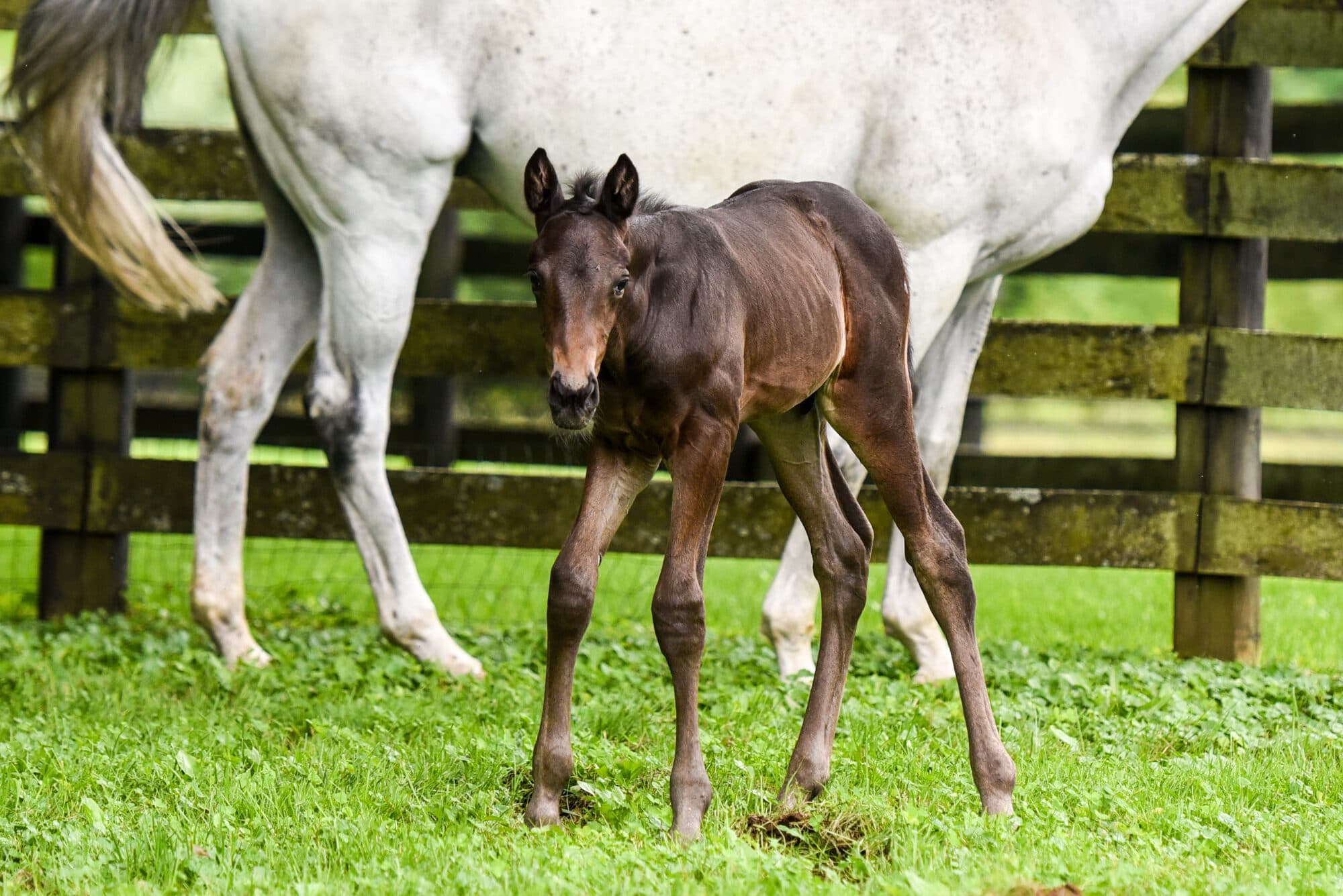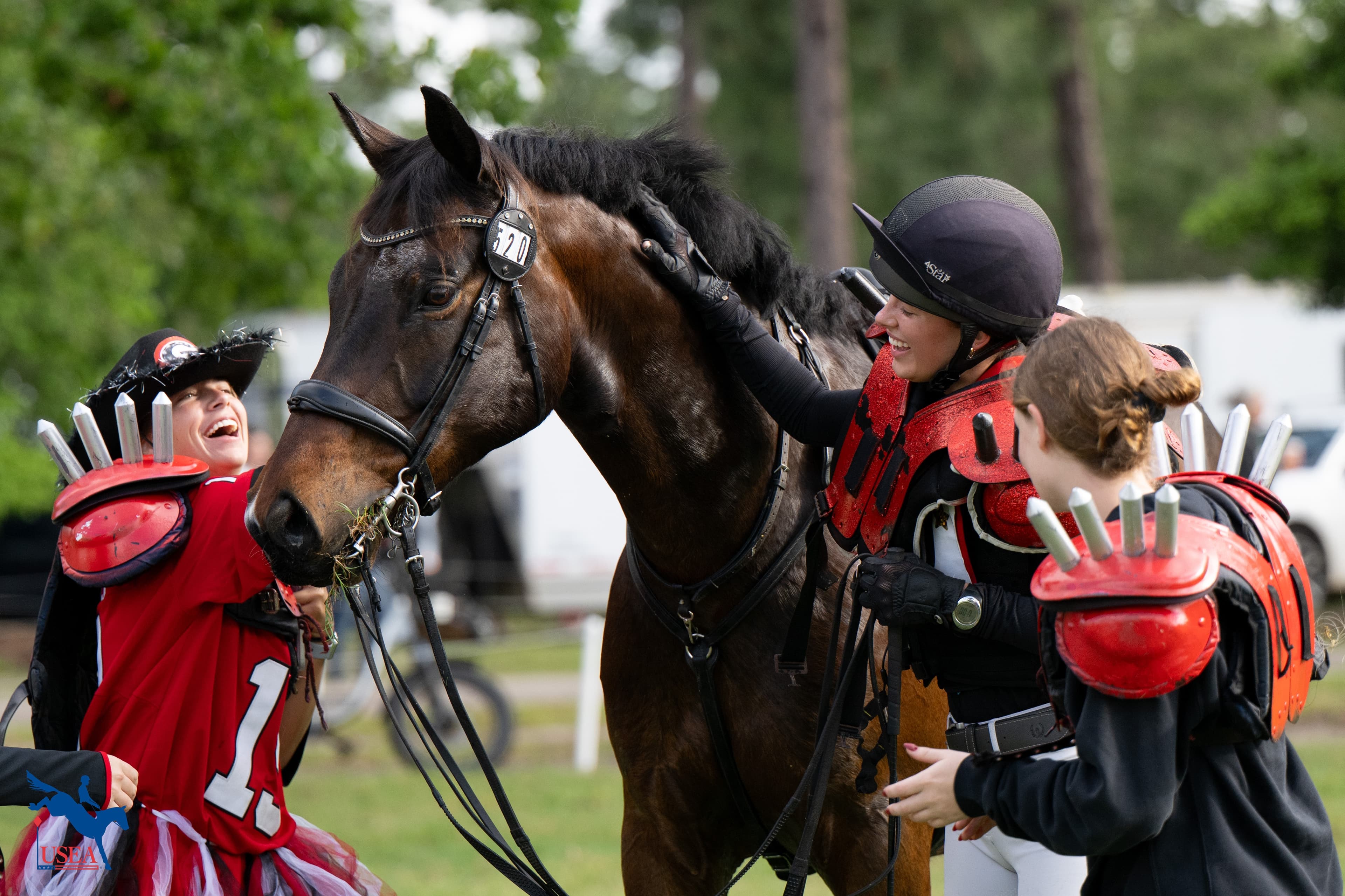Education
Top 10 Tips for Handling Babies with Sue Clarke

From the moment they hit the ground to the day they take their first steps under saddle, everything you do with your young horse is setting them up for success in their future career. Sue Clarke, Stable Manager at Ms. Jacqueline Mars’ Stonehall Farm in The Plains, Virginia, is part of a team that includes Lauren Nicholson (neé Kieffer), Kimmy Cecere, and David O’Connor that helps raise young horses from their very first steps on the ground to their first competitions and beyond.
With over 30 years of experience working with horses and much of that spent managing a breeding operation with many young horses, Clarke shares her advice on some of the things you can do to help set your youngster up for success.
- We are all over them from the moment they’re born – I typically have them until they’re weaned and in that time period they’re so much easier to work with and develop their confidence and independence, so we do a lot of handling. We spend a lot of time grooming them to get them accustomed to being touched. Touch them all over – rub your hands all over them.
- I start picking their feet in the first week, just so they get used to the action of having the hand run down their leg and having their feet picked up. I’ll even use a brush on their feet so they get used to that sensation before the farrier works on them for the first time. We usually have a farrier working on them at their fourth week, unless there are problems in which case they’ll actually start sooner than that.
- When it comes to clippers, we won’t actually clip them but we will turn on the little battery-operated ones and start getting them used to the noise and rubbing the clippers all over them. Same with the manes and tails – I don’t pull the mane or tail on a foal but I will get them used to that sensation of pulling on the hair. It’s so much easier to get them used to it when they’re younger, especially if you don’t make a big deal of it – it just becomes part of what they go through on a daily basis.
- We also start right away with putting head collars on and off. I’m not a big believer in leaving head collars on in the field, so ours get very accustomed to being led out with a halter on and then, just like a big horse, they have to learn how to stand for it to be taken off. Even at a week old – obviously we’re not leading them by the head collar at that point – but they have it taken on and off when we let them loose and then when they come in we put it back on again.
- I teach them to walk with me, either alongside the mare or, as they get older, I encourage them to be out in front of the mare, and when you are able to lead them with a rope attached to their halter, that’s when you start teaching them to go forward. I’ll tap them with the lead rope a little bit on their bum and at the same time I’ll make a noise, and hopefully it translates that you make the noise and they associate it with going forward. Some learn it much quicker than others! That’s one of the biggest jobs that we have when they’re a baby – by the time they’re weaned they know how to go forward. They need to know that because without that ability you’re not going to be able to do anything with them – they’re always running away from you or second-guessing you and it makes it so much harder.
- I like to try to introduce them to the trailer with the mare. The noise of the trailer and all of that can be a bit daunting and they’re just a bit more secure with the mare. The mare will stand and eat hay in the trailer and the foal will hopefully get the idea.
- We wean between four and six months, depending on the foal. When they’re first weaned and ready to live out I put all the foals in a big field together. We don’t do a lot with them immediately other than keep our eyes on them. We’ll bring them in periodically so they get used to coming in and out and groom or bathe them and the farrier will continue to work on them so they get used to being led and being in different environments.
- To prepare them to participate in the USEA Future Event Horse Classes, we will first make sure they stay familiar with being groomed and handled and being able to leave the barn by themselves to go down to the ring by themselves. We’ll practice walking and jogging around the ring in-hand and turning. We do a lot of natural horsemanship work with them, which I think really builds their confidence and keeps them interested in you and what you’re doing. Then, when you do take them off the property, they’re a little more prepared to listen to you and look to you for guidance.
- We don’t back them until the end of their third year. We ship them down to Florida at the end of their third year and that’s when they go to Kindergarten. Some of the babies will be successful at our sport and some won’t – we’ll develop them to a certain level and if we feel they’re geared towards something else then we would sell them on.
- Be consistent and be very patient when working with young horses. You really want to develop that bond with them so when you’re asking things of them they’re looking to you to show them the next step.















